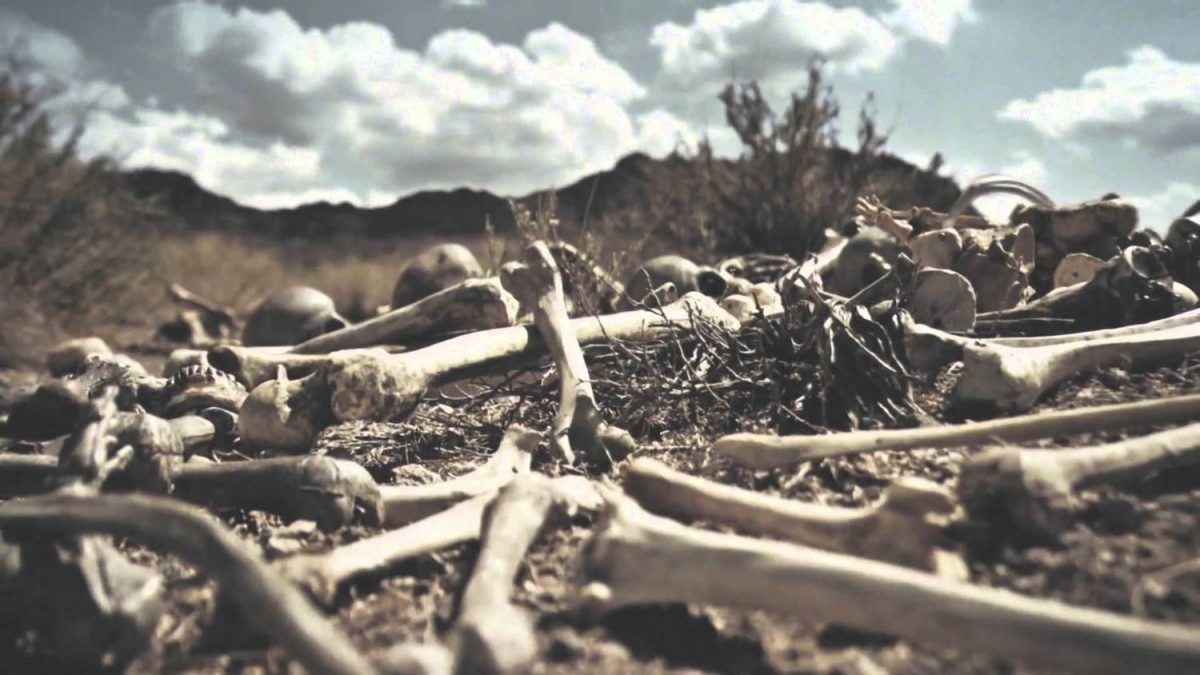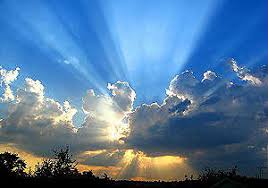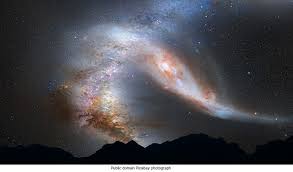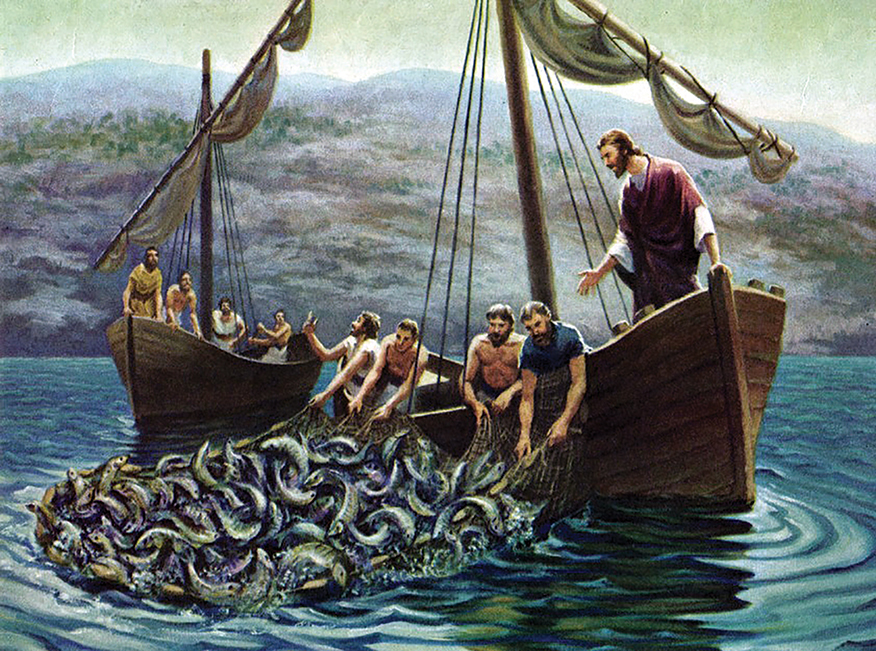Background Passages: 2 Corinthians 5:16-20: John 3:1-21
Fifty years ago, while a student a Texas Tech University, I worked as a salesclerk at the Baptist Bookstore in Lubbock. It didn’t pay great, but the flexible hours allowed me to work around my class schedule.
For an avid reader, the downside of working in a place filled with books is that it is a place filled with books, all of which were offered to employees at a sizable discount. found myself spending a good portion of my paycheck each month building my personal library.
I still have many of those books on my library shelf. While straightening one of those shelves this week, I came across a book called Dancing at My Funeral, written by Maxie Dunnam. I probably haven’t read anything from this book in 30 years. With my Dad’s memorial service fresh on my mind, I thumbed through the pages, drawn to a chapter entitled, “I Believe in Life After Birth.”
Because a funeral draws our attention to life after death, I found the title of the chapter intriguing enough to sit and read. Dunnam talked about the danger of sleepwalking through life after making our commitment to Christ. To cut a long chapter short, he wanted his reader to understand that Christians miss the joy of our promised “life abundant” when we don’t let our faith really challenge and change us.
One of the passages of scripture he referenced in 2 Corinthians was a passage I had considered as the basis of my writing this week. It may be coincidence, but I like to think it was a God thing. Here’s the verse.
Therefore, if anyone is in Christ; the new creation has come; the old is gone and the new is here! (2 Corinthians 5:17)
In one sense, what Paul is saying is clear. Once we put our faith and trust in Jesus as savior and boss of our lives, we get to start again. We get to change the patterns of our old life that do not reflect the character and image of Christ to become a new creation…a new person intent upon living for him. The old way of life must pass, letting God lay out a new path before us.
A new creation has come…
Paul’s choice of words here is intentional. It’s like waking up in the morning to a new world. Look at what he wrote earlier in his letter to the church in Corinth.
For God, who said, “Let light shine out of darkness,” made his light shine in our hearts to give us the light of the knowledge of God’s glory displayed in the face of Jesus Christ. (2 Corinthians 4:6)
Can you see the connection Paul tries to make? The God of creation found in Genesis is the same God of our salvation. Just as God spoke all of creation into existence by the power of his word, God speaks in us a new creation through the powerful words of his gospel…through the saving work of Christ, his gospel of truth and the indwelling presence in our hearts of his spirit.
This new person that God creates in us is a light that shines in the darkness of a sinful world. A testimony to the saving and transforming power of Jesus, but only if we allow him to change us from the inside out.
It is here that Dunnam makes a connection I’ve never considered. He equates this “new creation” in 2 Corinthians with “new birth.” Not so much a do-over as a new start. A change. It’s what Jesus tried to explain to Nicodemus in John 3.
You probably know Nicodemus. He’s the Pharisee who came to Jesus late at night to discuss theology and got a lesson in faith. While we often paint the Pharisees dressed in black, hypocrites whose faces look like they bit into a sour lemon, there were some sincere folks among their ranks. Nicodemus stood as one of the good ones. Faithful. Devout. Open. Curious.
That’s why he could not discount the teachings of this Galilean rabbi who said some unsettling things. There was something in Jesus’ words that bore a ring of truth that Nicodemus could set aside.
You see Nicodemus bound his life to the law…every jot and tittle. Obedience to the law and doing good was his path to salvation. Yet, he must have found it stifling. Dull. Drab. Jesus taught differently, challenging everything Nicodemus held dear and promising life in its fullest.
It is somewhat surprising that a man who regarded faith as a measure of obedience to the law and had given his life completely to it would seek out Jesus at all. Though the Bible doesn’t tell us how many times Nicodemus had listened from the edge of the crowd as Jesus taught in the temple or synagogues, he surely heard. What he heard made the religion he practiced pale in comparison to the promises that Jesus taught.
This is what prompted the Pharisee to seek out the teacher. Careful, though, of his standing among the group, Nicodemus wanted a private audience with Jesus, covered by the veil of darkness.
When he arrived at Jesus’ camp, he engaged in a little polite small talk. Nicodemus, impressed with Jesus’ teaching and the miracles he performed, made a point to tell him so. It was his opening statement in what he presumed might become a lively debate. Jesus responded with a statement that led Nicodemus down a rabbit hole into a wonderland of confusion.
Hear the conversation that pushed Nicodemus over the edge.
“I tell you the truth, no one can see the kingdom of God unless he is born again.”
“How can a man be born when he is old?” asked Nicodemus. “Surely, he cannot enter a second time into his mother’s womb to be born.”
Jesus answered, “No one can enter the kingdom of God unless his is born of water and the Spirit. Flesh gives birth to flesh, but the Spirit gives birth to spirt. You should not be surprised at my saying, “you must be born again.” The wind blows wherever it pleases. You can hear the sound, but you cannot tell where it comes from or where it is going. So, it is with everyone born of the spirit.” (John 3:3-8)
As Jesus drew Nicodemus deeper into the truth, Nicodemus struggled to keep up. It was a lot to take in.
“…Just as Moses lifted up the snake in the desert, so the Son of Man must be lifted up that everyone who believes in him may have eternal life. For God so loved the world that he gave his one and only son that whoever believes in him shall not perish but have eternal life. (John 3:15-16)
Jesus told him that no matter how hard you try to obey Moses law, you will fail. The only hope of eternal life is to be born again…to be changed through the unmerited grace and love of God
The truth that Jesus taught Nicodemus is the same truth Paul taught the Corinthians. You must be born again. We must set aside the old us in favor of the new us that is found in Christ.
So, I ask the question again. A question each of us must answer for ourselves.
Is there life after birth?
Jesus says there is life abundant.
I am the gate, whoever enters through me will be saved. They will come in and go out and find pasture. The thief comes to steal and kill and destroy. I have come that they may have life and have it to the full. (John 10:9-10)
Paul said there this life is alive.
When you were dead in your sins and in the uncircumcision of your sinful nature, God made you alive with Christ. (Col 2:13)
Think about the life Christ offers. Abundant. Alive.
It is the life we’ve been promised when we put our faith and trust in Christ. It will never happen, though unless we decide to be open to the possibilities. When we’re ready to surrender the control to which we so desperately cling. To say “Yes.”
Swiss psychologist Paul Tournier said that the “willingness to surrender is the pivotal point for becoming a whole person.” Being born again…becoming a new creation…is a plunge into the unknown. Faith let’s go. Faith surrenders.
Faith surrenders to a new perspective.
In the verse immediately preceding Paul’s thoughts about being a new creation, he calls upon all believers to look at the world differently.
So, from now on, we regard no one from a worldly point of view. Though we once regarded Christ in this way we do so no longer. (2 Corinthians 5:16)
Paul talks about this new creation we become, this life after new birth, so we can look at ourselves differently, though that’s certain a part of it. He also suggests that the new creation we become will enable us to see those around us with new eyes.
From now on, Paul says, we no longer see the world around us, the people around us, from a selfish perspective, but rather through the eyes of a loving father. To be a new creation is to see others…and even ourselves… as worthy of God’s love. That perspective matters. That perspective changes us. If we’re able to make that leap, how much would it change who we are and our perspective of the world around us? How much would it drive or temper our actions?
Faith surrenders to a new purpose.
As a new creation, Paul understood that our purpose changes as we change. Our new outlook propels us into a new purpose, one Paul calls the “ministry of reconciliation.” Look again at what he says in 2 Corinthians.
All of this is from God who reconciled us to himself through Christ and gave us the ministry of reconciliation: that God has reconciled the world to himself through Christ, not counting men’s sins against them. And he has committed us to the message of reconciliation. We are therefore Christ’s ambassadors, as though God was making his appeal through us.” (2 Corinthians 5:18-20)
Christ died so he might fix the broken relationship between us and God. To bring us into a reconciled relationship with our Creator. To be his representative in this alien world. As this new creation, he called us so we might help others be reconciled to God. Through the words we say to others. Through the things we do for others. Through the life we live for others.
Is there life after birth?
I answer with a resounding yes! It comes with a changed perspective and a challenging purpose. When we act accordingly, it is a life that is abundant and alive with possibilities, not just for you, but for all we encounter.
I’ve failed at the task far more often than I care to admit. I expect you have, too. Let’s together pledge to celebrate our life after birth, by committing to our calling in the ministry of reconciliation with a fresh perspective and purpose.










